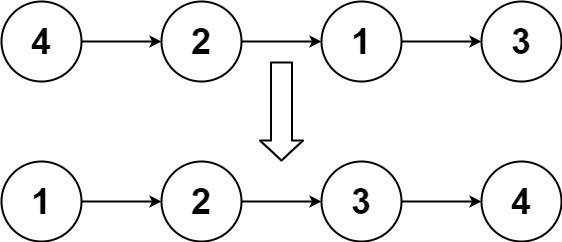2020-10-13 Daily-Challenge
Today, The non-Designer's Design Book seems have no more specific problems, so I finished it(after do the review of this week), I have done Self Dividing Numbers on leetcode and leetcode's October LeetCoding Challenge with cpp.
Self Dividing Numbers
Description
A self-dividing number is a number that is divisible by every digit it contains.
For example, 128 is a self-dividing number because 128 % 1 == 0, 128 % 2 == 0, and 128 % 8 == 0.
Also, a self-dividing number is not allowed to contain the digit zero.
Given a lower and upper number bound, output a list of every possible self dividing number, including the bounds if possible.
Example 1:
Input:
left = 1, right = 22
Output: [1, 2, 3, 4, 5, 6, 7, 8, 9, 11, 12, 15, 22]
Note:
The boundaries of each input argument are 1 <= left <= right <= 10000.
Solution
using precomputed table :)
class Solution {
public:
vector<int> selfDividingNumbers(int left, int right) {
vector<int> ans = {1,2,3,4,5,6,7,8,9,11,12,15,22,24,33,36,44,48,55,66,77,88,99,111,112,115,122,124,126,128,132,135,144,155,162,168,175,184,212,216,222,224,244,248,264,288,312,315,324,333,336,366,384,396,412,424,432,444,448,488,515,555,612,624,636,648,666,672,728,735,777,784,816,824,848,864,888,936,999,1111,1112,1113,1115,1116,1122,1124,1128,1131,1144,1155,1164,1176,1184,1197,1212,1222,1224,1236,1244,1248,1266,1288,1296,1311,1326,1332,1335,1344,1362,1368,1395,1412,1416,1424,1444,1448,1464,1488,1515,1555,1575,1626,1632,1644,1662,1692,1715,1722,1764,1771,1824,1848,1888,1926,1935,1944,1962,2112,2122,2124,2128,2136,2144,2166,2184,2196,2212,2222,2224,2226,2232,2244,2248,2262,2288,2316,2322,2328,2364,2412,2424,2436,2444,2448,2488,2616,2622,2664,2688,2744,2772,2824,2832,2848,2888,2916,3111,3126,3132,3135,3144,3162,3168,3171,3195,3216,3222,3264,3276,3288,3312,3315,3324,3333,3336,3339,3366,3384,3393,3432,3444,3492,3555,3612,3624,3636,3648,3666,3717,3816,3864,3888,3915,3924,3933,3996,4112,4116,4124,4128,4144,4164,4172,4184,4212,4224,4236,4244,4248,4288,4332,4344,4368,4392,4412,4416,4424,4444,4448,4464,4488,4632,4644,4824,4848,4872,4888,4896,4932,4968,5115,5155,5355,5515,5535,5555,5775,6126,6132,6144,6162,6168,6192,6216,6222,6264,6288,6312,6324,6336,6366,6384,6432,6444,6612,6624,6636,6648,6666,6696,6762,6816,6864,6888,6912,6966,6984,7112,7119,7175,7224,7266,7371,7448,7476,7644,7728,7777,7784,8112,8128,8136,8144,8184,8224,8232,8248,8288,8328,8424,8448,8488,8496,8616,8664,8688,8736,8824,8832,8848,8888,8928,9126,9135,9144,9162,9216,9288,9315,9324,9333,9396,9432,9612,9648,9666,9864,9936,9999};
return vector<int>(lower_bound(ans.begin(), ans.end(), left),upper_bound(ans.begin(), ans.end(), right));
}
};
October LeetCoding Challenge 13
Description
Sort List
Given the head of a linked list, return the list after sorting it in ascending order.
Follow up: Can you sort the linked list in O(n logn) time and O(1) memory (i.e. constant space)?
Example 1:

Input: head = [4,2,1,3]
Output: [1,2,3,4]
Example 2:

Input: head = [-1,5,3,4,0]
Output: [-1,0,3,4,5]
Example 3:
Input: head = []
Output: []
Constraints:
- The number of nodes in the list is in the range
[0, 5 * 104]. -105 <= Node.val <= 105
Solution
randomized quick sort, ugly code
#include <bits/stdc++.h>
#define LL long long
#define mk(a, b) make_pair(a, b)
#define ULL unsigned long long
#define mem(a, n) memset(a, n, sizeof(a))
#define lowbit(x) ((x) & (-x))
using namespace std;
struct ListNode {
int val;
ListNode *next;
ListNode() : val(0), next(nullptr) {}
ListNode(int x) : val(x), next(nullptr) {}
ListNode(int x, ListNode *next) : val(x), next(next) {}
};
void print(ListNode *head) {
while (head) {
cout << head->val << ' ';
head = head->next;
}
cout << endl;
}
class Solution {
default_random_engine generator;
int length(ListNode *head) {
if (!head) return 0;
int len = 0;
if (head->val == -1000000) head = head->next;
while (head) {
len += 1;
head = head->next;
}
return len;
}
ListNode *advance(ListNode *head, int cnt) {
if (head->val == -1000000) head = head->next;
while (cnt--) head = head->next;
return head;
}
public:
ListNode *sortList(ListNode *head) {
int len = length(head);
if (len < 2) {
if (head && head->val == -1000000) head = head->next;
return head;
}
ListNode *new_head_less = new ListNode(-1000000), *new_head_more = new ListNode(-1000000);
ListNode *new_cur_less = new_head_less, *new_cur_more = new_head_more;
uniform_int_distribution<int> distribution(1, len - 1);
int pivot_offset = distribution(generator);
ListNode *mid_pri = advance(head, pivot_offset - 1);
ListNode *mid = mid_pri->next;
ListNode *mid_cur = mid;
mid_pri->next = mid->next;
mid->next = nullptr;
if (head->val == -1000000) head = head->next;
while (head) {
ListNode *nxt = head->next;
if (head->val < mid->val) {
new_cur_less->next = head;
new_cur_less = new_cur_less->next;
new_cur_less->next = nullptr;
} else if (head->val > mid->val) {
new_cur_more->next = head;
new_cur_more = new_cur_more->next;
new_cur_more->next = nullptr;
} else {
mid_cur->next = head;
mid_cur = mid_cur->next;
mid_cur->next = nullptr;
}
head = nxt;
}
new_head_less->next = sortList(new_head_less);
new_cur_less = new_head_less;
while (new_cur_less->next) new_cur_less = new_cur_less->next;
new_head_more->next = sortList(new_head_more);
new_cur_less->next = mid;
mid_cur->next = new_head_more->next;
return new_head_less->next;
}
};
int main() {
ListNode *head = new ListNode(4);
ListNode *cur = head;
cur->next = new ListNode(1);
cur = cur->next;
cur->next = new ListNode(2);
cur = cur->next;
cur->next = new ListNode(3);
cur = cur->next;
print(head);
auto a = Solution();
ListNode *new_head = a.sortList(head);
print(new_head);
return 0;
}